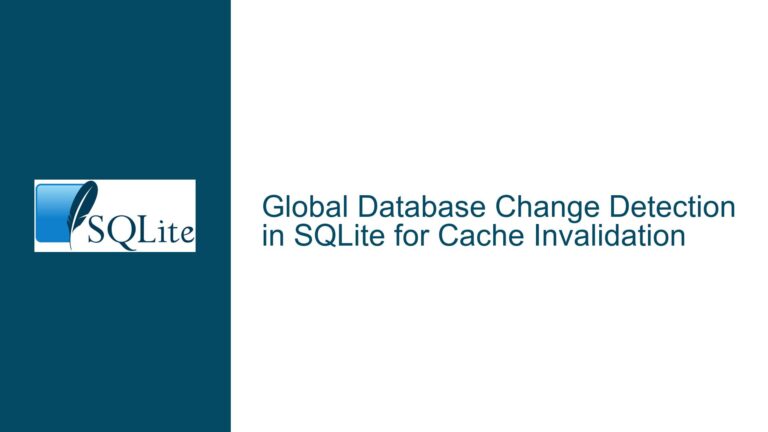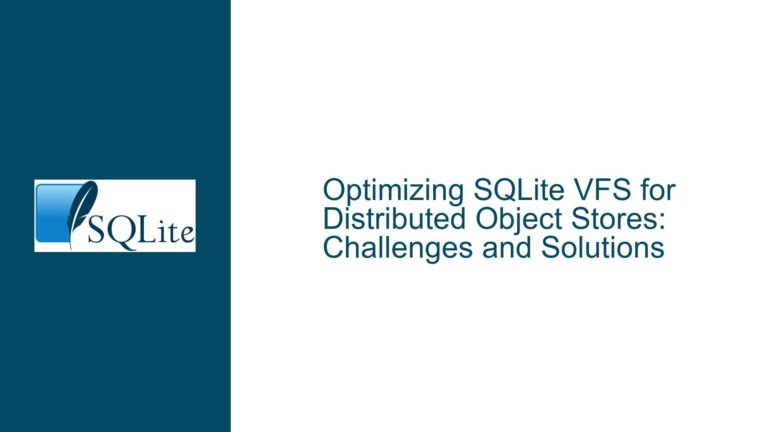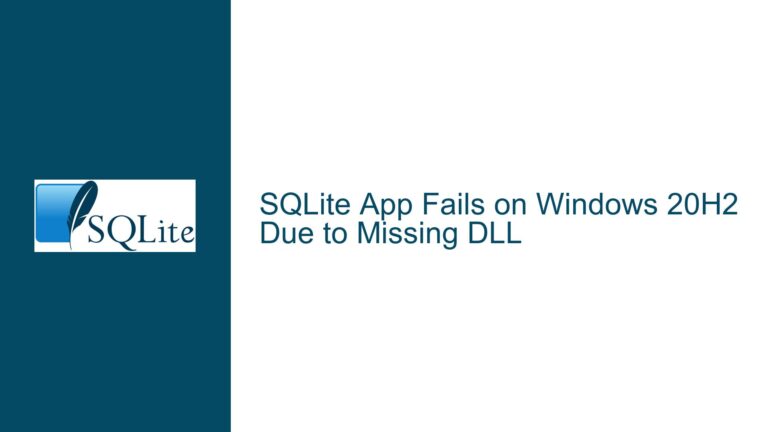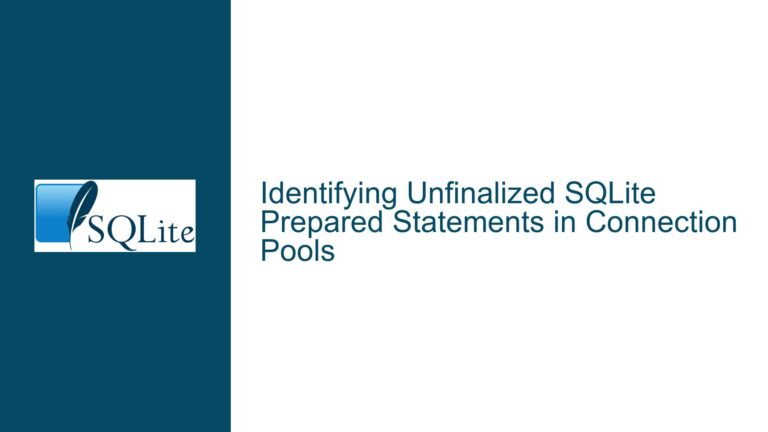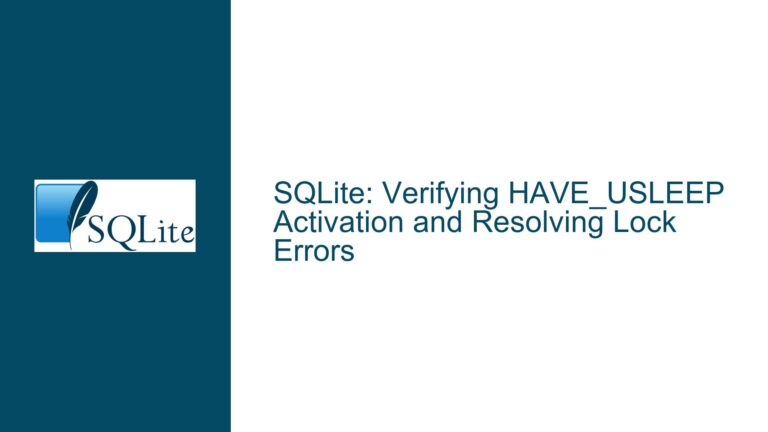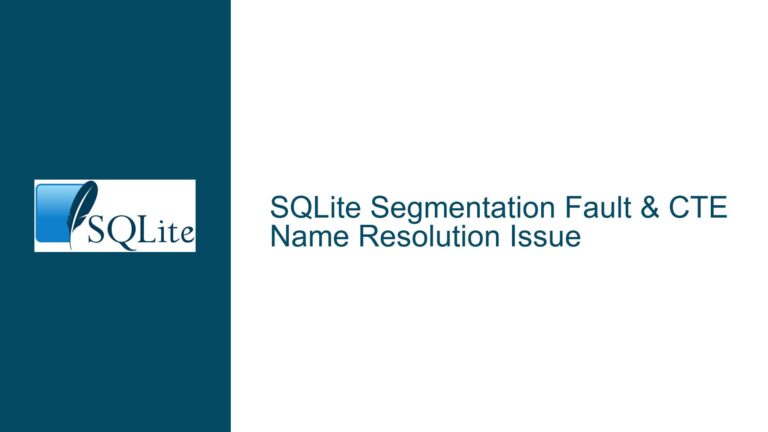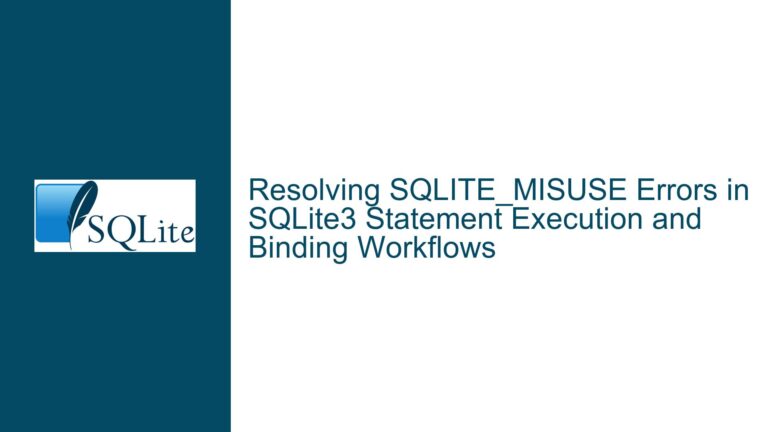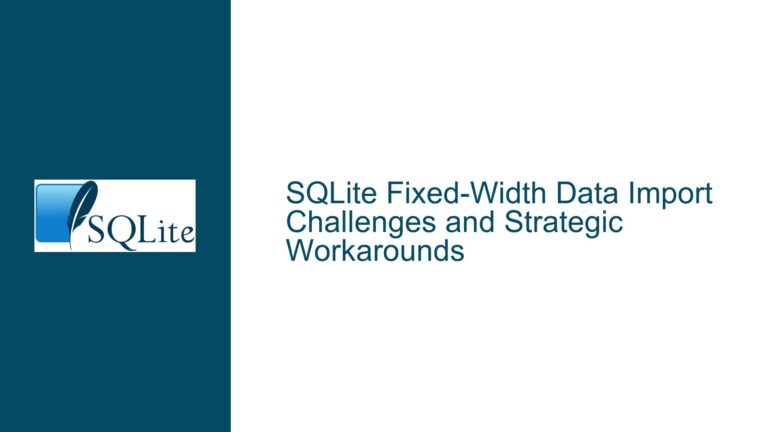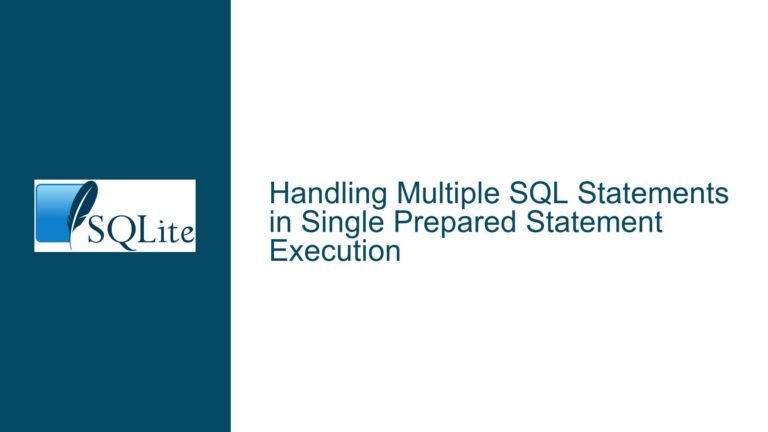Global Database Change Detection in SQLite for Cache Invalidation
Understanding the Need for a Global Data Version Counter In the realm of database management, particularly with SQLite, the need to detect changes across the entire database for purposes such as cache invalidation is a common yet nuanced challenge. The core of the issue revolves around the desire to have a global, monotonic counter that…
